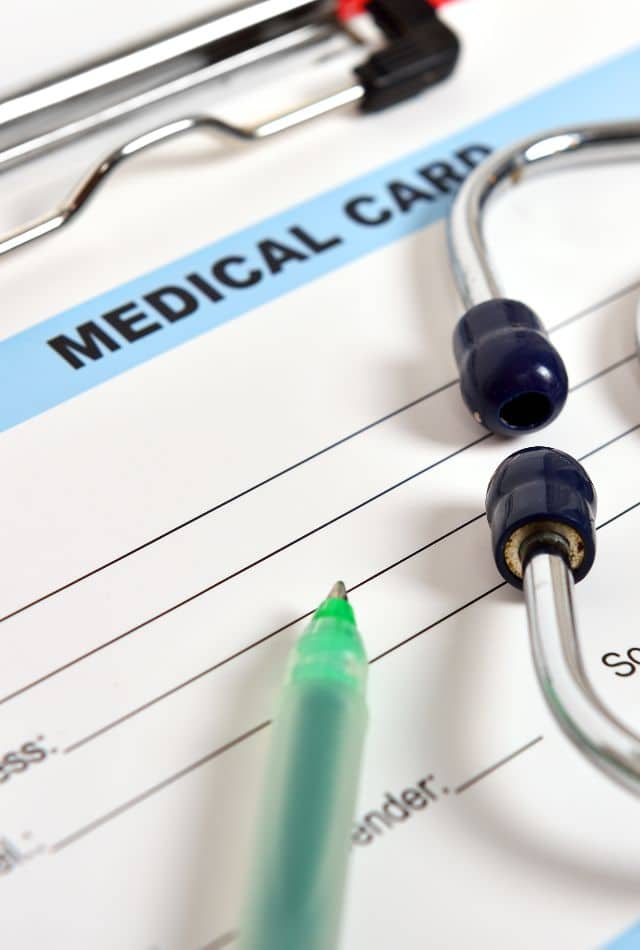What is a DOT Medical Card – Overview
Suppose you are a commercial driver in the US. In that case, you require specific qualifications that are dictated by the US Department of Transportation (DOT) and the State Department of Motor Vehicles (DMV). A DOT medical certification is important to get your commercial driver’s license.
Though each state has varying requirements for this credential, it is usually necessary to complete a DOT physical exam is usually necessary.
Let’s look at the DOT medical card and how to obtain one.
What Is a Dot Medical Certification?

The Department of Transportation medical certification is a certifying credential that commercial drivers need to complete. This is required to demonstrate physical, mental, and emotional fitness.
The Federal Motor Carrier Safety Administration (FMCSA) awards this credential to commercial vehicle drivers upon completing and passing a physical examination through a DOT-approved medical provider.
This physical examination is necessary to receive your DOT Medical Examiner’s Certificate and to operate safety-sensitive driving vehicles.
In addition, every state has different criteria, so it is essential to enquire about the specific requirements from your state’s transportation department.
How to Get a Dot Medical Card?
A few steps are involved in getting a DOT medical card and most commercial driving schools assist students in obtaining this credential after they complete their driver’s training.
These are the steps to get a DOT medical card in the US:
Step 1 – Contact a Dot-Approved Medical Provider
The Department of Transportation requires drivers to complete their physical evaluation through an approved doctor. In most situations, interstate drivers undergo physical examinations with an FMCSA-certified medical examiner (CME).
Interstate drivers must complete their physicals through FMCSA-certified medical examiners, not limited to their state’s approved healthcare providers, to ensure national standards are met.
So, it is highly important to find your state’s approved medical and health providers who can administer the physical examination necessary to get a DOT medical card.
Step 2 – Take the Dot Physical Exam
When you find the DOT-approved CME, you can schedule an appointment for a physical exam. It would be best to find an approved healthcare provider nearer to you. This can help you save time traveling, ensure you complete the examination, and submit your certification for approval promptly.
Usually, drivers make appointments and receive medical cards to submit to the DOT. The medical examiner will keep a record of this certification.
Step 3 – Submit Your Dot Medical Card
Every state has its guidelines for submitting the DOT medical certification. Once you receive your medical cards from an approved doctor, you can submit the certification to the state’s DMV office in person, by mail, or through fax or email.
Remember, there may also be a time limit for submitting a medical certification, depending on your state-specific requirements. So, getting this credential to your DMV as soon as possible is essential upon receiving it. Some motor vehicle departments also let you check the status of your medical certificate application so it becomes valid on your driving record.
Step 4 – Follow Guidelines for Renewal
Drivers must renew their DOT medical card typically every 24 months. However, drivers with certain health conditions may be issued a medical certificate with a shorter validity period, requiring more frequent renewals based on the medical examiner’s discretion and applicable regulations. This will also include regular health evaluations to ensure that any health condition remains minimal.
Some health conditions that require commercial drivers to renew their DOT medical card every 12 months are high blood pressure, sleep apnea, diabetes, etc. The renewal process depends on the severity and impact of these health conditions.
Hence, it is extremely important to understand your state’s specific DOT medical card renewal process related to your health status.
What Are the Benefits of a Dot Medical Card?
Besides certifying drivers to be fit for the job, a DOT medical certification also has other benefits, such as:
Fulfills Job Requirements
A commercial driver’s license (CDL) is a specialized license to operate safety-sensitive vehicles for commercial and private companies. In addition, a DOT medical card is necessary for many jobs in the trucking and transportation businesses.
Hence, completing your physical evaluation and obtaining a DOT medical certification ensures that you fulfill the job requirements for the position you seek.
Reduces Liabilities
The physical exam is part of DOT’s records for professionals who hold CDLs. These records ensure that employers and government agencies are physically and mentally fit to perform their jobs.
This assurance helps companies to reduce the liability of insuring drivers without CDLs, as the DOT medical certification supports issuing the commercial license and respective insurance costs that employers often have to pay.
Conclusion
Not all driving professionals need to obtain a CDL or DOT medical certificate. This is only mandated for drivers who operate vehicles that meet certain criteria based on their weight, transport class, and compensation.
Make sure to check with your local DMV to see if your intended job requires you to have a DOT medical card.
See Also
How to Read Blue Cross Blue Shield Insurance Card
Best Credit Card for Medical Expenses